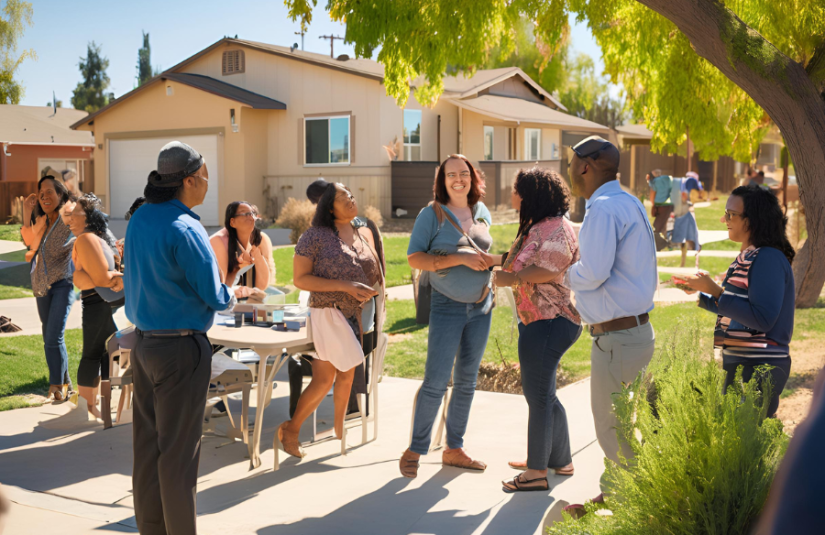Fresno’s Housing Crisis: Affordable Housing Initiatives and the Role of Self-Storage Solutions
Fresno, California, is experiencing a worsening housing crisis, characterized by a major shortage of affordable homes and rising demand from residents and employees. Recent projections suggest that the city will require more than 30,000 affordable housing units to meet present demand. Local initiatives, such as the "One Fresno Housing Strategy," offer $259 million in investments to enhance the availability of affordable housing while also addressing market-wide systemic impediments. The city is seeing a rising lack of affordable housing, which impacts not only residents but also important professionals like school district personnel. This issue has sparked discussions and activities across sectors, emphasizing the city's critical need for additional housing supply and affordability solutions. A increase in demand for affordable housing, combined with a scarcity of available units, has left thousands of people searching for stable, low-cost living. Recent initiatives show both the scope of the situation and potential solutions. In a unique move, a local school system is considering creating 1,000 affordable housing units to help retain employees. Employees' pleas for housing highlight the gravity of the situation: many are unable to purchase homes close to their companies, forcing them to live further away, endure long commutes, or confront unsustainable housing expenses. This project intends to give income-restricted units to persons earning less than the area's median income, illustrating a growing trend in which companies take an active role in addressing housing issues. While Fresno has made progress, the severity of the housing situation need more comprehensive policies and investments. The city must continue to explore novel alternatives, such as repurposing underutilized properties and strengthening public-private collaborations. Addressing the situation not only meets a basic need, but also ensures the economic stability and progress of Fresno's communities. Fresno can build a more sustainable future for its inhabitants, workers, and businesses by putting affordable housing first. The current efforts lay the groundwork, but more action and resources are required to bridge the gap between housing availability and the requirements of the city's expanding population.
Housing statistics in Fresno highlight the severity of the situation. According to recent estimates, the county has a lack of almost 35,000 affordable rental units for low-income residents. Over 80% of severely low-income households pay more than half of their income on rent, leaving little money for other necessities. Furthermore, average rents in Fresno are rising, with inhabitants earning roughly 1.6 times the minimum wage to purchase a typical unit. These pressures are especially apparent for workers in the education, healthcare, and retail industries, who frequently fall into the income groups that are hardest hit by rising rental costs. In addition to general housing initiatives, Fresno State University recently announced a $53.7 million student housing project, the first of its kind in 50 years. This building addresses student housing shortages and represents broader efforts to increase affordable living options for all demographics. Fresno's average asking rents have continuously increased, with many inhabitants earning nearly double the minimum wage to afford basic accommodation. The combination of high pricing and restricted availability causes families to choose between basic necessities and stable living situations. Furthermore, Fresno's population has expanded by around 1.2% annually, putting further demand on an already restricted housing supply.
Self-storage can also help families migrating between residences or individuals who choose to rent smaller flats to save money. For example, by keeping seasonal things, furniture, or rarely used possessions, families can maximize their living space without feeling crowded. Furthermore, students living in tight dorms or shared housing near Fresno State can use self-storage to keep their stuff safe during summer vacations or while studying abroad. Fresno's numerous self-storage facilities offer solutions to meet a variety of needs and budgets. Many facilities have climate-controlled units to safeguard things from adverse weather conditions, while others have flexible rental terms that are excellent for temporary storage needs. By incorporating self-storage into their housing strategy, people may better organize their space, decrease clutter, and concentrate on finding inexpensive long-term housing options. Local governments and community organizations might promote self-storage as an additional tool for alleviating housing shortages. Partnerships between storage companies and housing activists may result in lower rates for low-income households or temporary storage alternatives for people who are displaced. Such programs would provide an additional layer of support to people navigating Fresno's difficult housing situation. While self-storage is not a substitute for substantial home development, it does provide immediate relief to tenants who are short on space. Self-storage, when combined with new housing developments planned by local school districts and Fresno State, as well as policies targeted at rent stabilization and homelessness prevention, is part of a multifaceted strategy to Fresno's housing challenges. As the city expands its housing programs, raising awareness about the benefits of self-storage can help citizens manage their living arrangements more successfully. Fresno can contribute to a more stable and fair housing future by combining inexpensive housing, smart regulations, and practical technologies such as self-storage.


